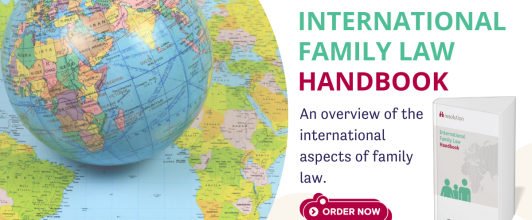
The Review
The Review is Resolution's bi-monthly magazine for members. Publishing six times a year with a mix of features, law and practice and news from the regions.
Broad range of information for professionals and practitioners in family law and justice.
Showing 261 - 280 of 518

The Review is Resolution's bi-monthly magazine for members. Publishing six times a year with a mix of features, law and practice and news from the regions.

Resonate is a new blog from Resolution, bringing together voices from across family law to share insight, experience and both personal and professional perspectives
As part of Resolution's Code of Practice members are asked to use the Good Practice Guides as part of their day to day work. These represent Resolution's core values and are designed to offer knowledge and guidance to our members.

Resolution Together is a way of working that allows lawyers to work with and advise couples jointly, including providing appropriate legal advice, through a divorce or separation.

Find resources on mediation, collaborative practice, arbitration and more.

This list of recommendations of family lawyers in other jurisdictions has been compiled by the members of Resolution's International Committee based on their working experience. The lawyers on this list are not Resolution members - unless indicated - and as such are not endorsed or recommended by Resolution.
Cafcass has now rolled out its new co-parenting programme nationally. It looks like an effective strategy to get high-conflict – but not change-averse – parents back to the drawing board.
The new report stresses the need for fundamental reform and culture change. We must all take responsibility for making that change happen.
Aspiring trainees are facing a changing and uncertain landscape. There are a number of areas that they – and lawyers assessing them – can focus on to make the process as normal as possible.
Online mediation has more than demonstrated its worth to separating families during the COVID-19 pandemic, argues one practitioner.
With the number of international cases ever on the rise, a broad familiarity with other marital regimes can help to remind practitioners of the key issues.
Remote family hearings have changed the game. Will we look back and wonder why we ever did it any differently?
Recent cases are shedding light on the court’s changing interpretations of needs and sharing within the context of prenup agreements.
Necessity breeds creativity, and the current challenges have opened up a new way of working that suits a lot of clients very well. The coronavirus has a lot to answer for. Never in a million years did I picture being able to do my job from home. From the restrictions that were put upon us all, I have been able to adapt the way I work and offer a more flexible approach to suit my clients’ needs.
Resolution’s 6,500 members are family lawyers, mediators and other family justice professionals, committed to a non-adversarial approach to family law and the resolution of family disputes.
Our response has been prepared by members of Resolution’s Property, Tax and Pensions Committee who deal with divorce and financial remedy applications on a regular basis.
HMCTS has been introducing changes to procedures on financial remedy and divorce.
As with most areas of contentious law, having to instruct a criminal or family lawyer is seldom a happy process for the client. Unfortunately, the nature of relationship breakdown means that all too often family proceedings result in the need for criminal advice.
Each month, Resolution summarises all the key developments for legal aid providers. This is the August 2020 edition.
In this video podcast, Marc Etherington and Anna-Laura Lock of Resolution's Parenting After Parting Committee talk to Nicola Withycombe, Co-Founder of Kids Come First about their separated parent support workshops and more.
Resolution’s 6,500 members are family lawyers and other family justice professionals committed to a non-confrontational approach to family law and the resolution of family disputes.
Many of our members act on behalf of clients in relation to separation and financial applications relating to divorce on a daily basis, sometimes supported by other professionals providing expert financial advice.
Our response has been prepared with grateful thanks to Rebecca Fisher of Russell Cooke, an expert tax lawyer member of Resolution’s Pensions, Tax and Financial Remedies Committee, and Roger Isaacs of Milsted Langdon who regularly provides expert accountancy evidence in family proceedings.
The UK left the EU on 31 January 2020 further to the European Union (Withdrawal Agreement) Act 2020. The implementation period runs to 31 December 2020.
With the outbreak of Covid-19 many of you will not be at your offices to receive your printed copy of The Review but help is at hand. For every issue we will be publishing the articles here in the Knowledge and Resources section of our website as well as the pdf of the printed version.
This much talked-about case seemed to re-open the door to compensation claims for loss of career, but does the full judgment support that?
When targeting equal pension division, should courts look to create equality of CEs or income? And are non-matrimonial pension rights to be excluded from pension sharing? This case also highlighted the importance of the Pensions Advisory Group report, and debunked the common interpretation of H v H.
This article considers the challenges of dealing with private companies during the coronavirus crisis and whether practitioners should be applying for permission for expert valuation evidence in relation to new cases or to revalue companies that have been valued in the recent past.
In the second of a two-part article on how grandparents can be brought into when parental issues have arisen, we focus here on public law proceedings and the details of child arrangements order and special guardianship orders.